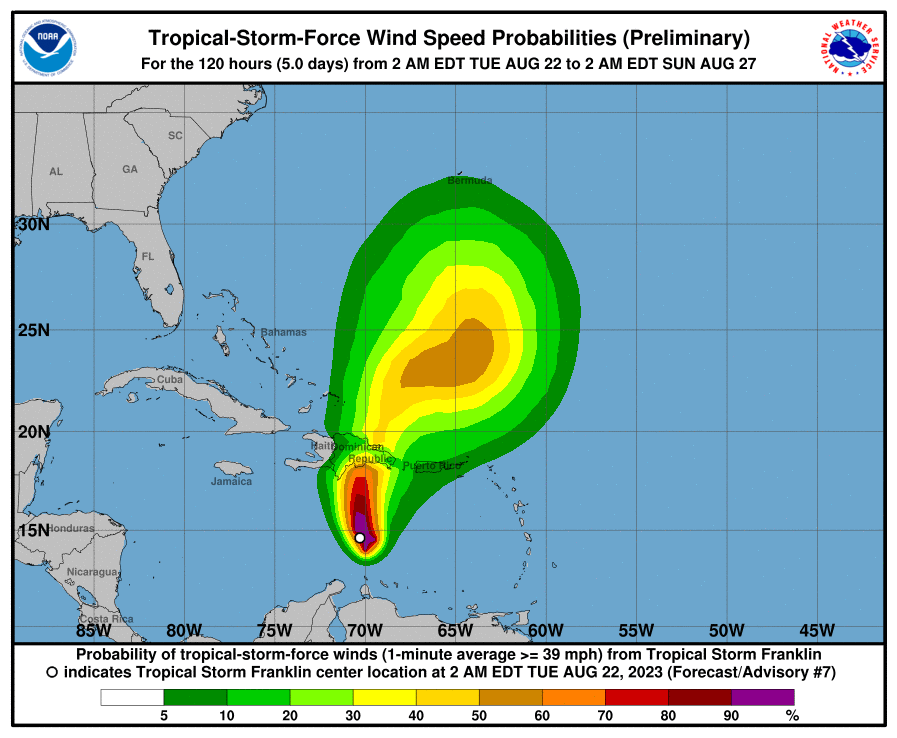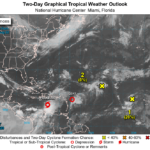MIAMI (Reuters) — Tropical Storm Frankilin in the eastern Caribbean Sea has a 90 percent chance of becoming a cyclone in the next two days, the U.S. National Hurricane Center (NHC) said.
Franklin is forecast to move westward to west-northwestward at 10 to 15 miles per hour over the eastern and central Caribbean, before turning northward and potentially affecting the Dominican Republic and Haiti on today or Wednesday, the NHC said.
Meanwhile,the NHC is issuing advisories on Franklin, located over the east-central Caribbean Sea, on Tropical Depression Gert, located a few hundred miles east-southeast of the northern Leeward Islands, and on recently upgraded Tropical Storm Harold, located over the western Gulf of Mexico.
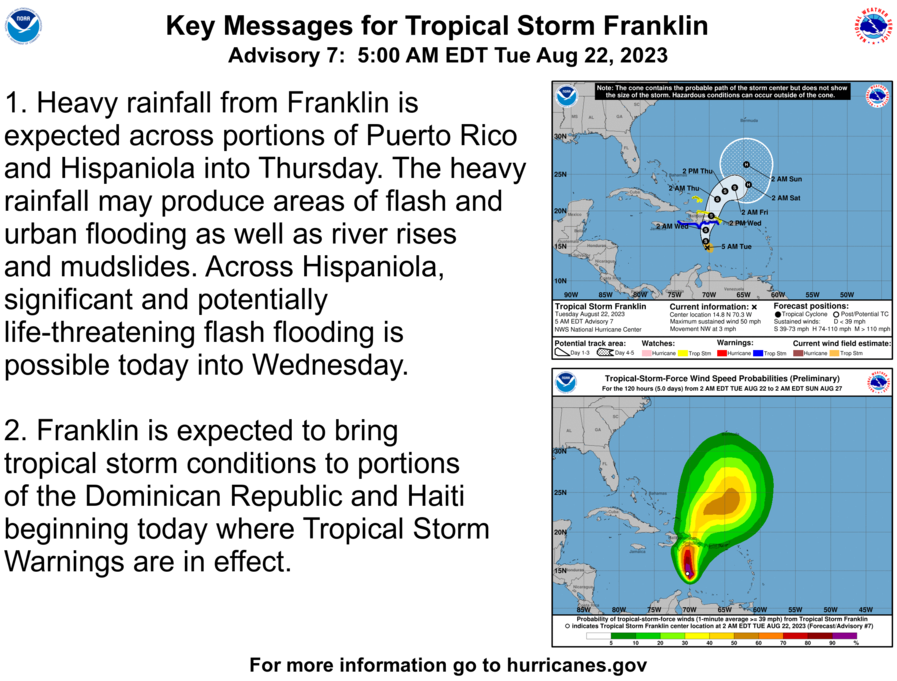
Eastern Tropical Atlantic
Disorganized showers and thunderstorms located a few hundred miles west of the Cabo Verde Islands are associated with a tropical wave.
Environmental conditions appear generally conducive for gradual development of this system, and a tropical depression could form later this week while it moves west-northwestward across the eastern tropical Atlantic.
* Formation chance through 48 hours…low…30 percent.
* Formation chance through 7 days…medium…60 percent.
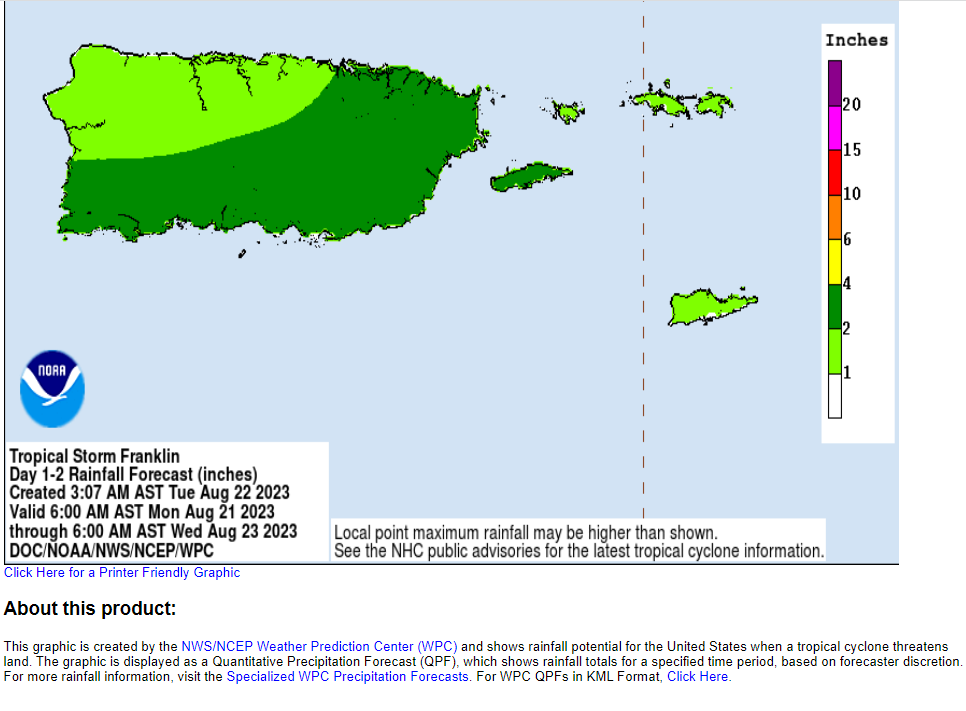
Central Tropical Atlantic
The remnants of former Tropical Storm Emily are located over the central tropical Atlantic several hundred miles east-northeast of the Leeward Islands with limited associated shower activity.
Environmental conditions could become more conducive for re-development of this system late this week or this weekend when the system moves northward over the subtropical central Atlantic.
* Formation chance through 48 hours…low…near 0 percent.
* Formation chance through 7 days…low…20 percent.
The NHC defines a tropical cyclone as having a maximum sustained surface wind speed (using the U.S. 1-minute average) is 33 kt (38 mph or 62 kilometers per hour) or less.
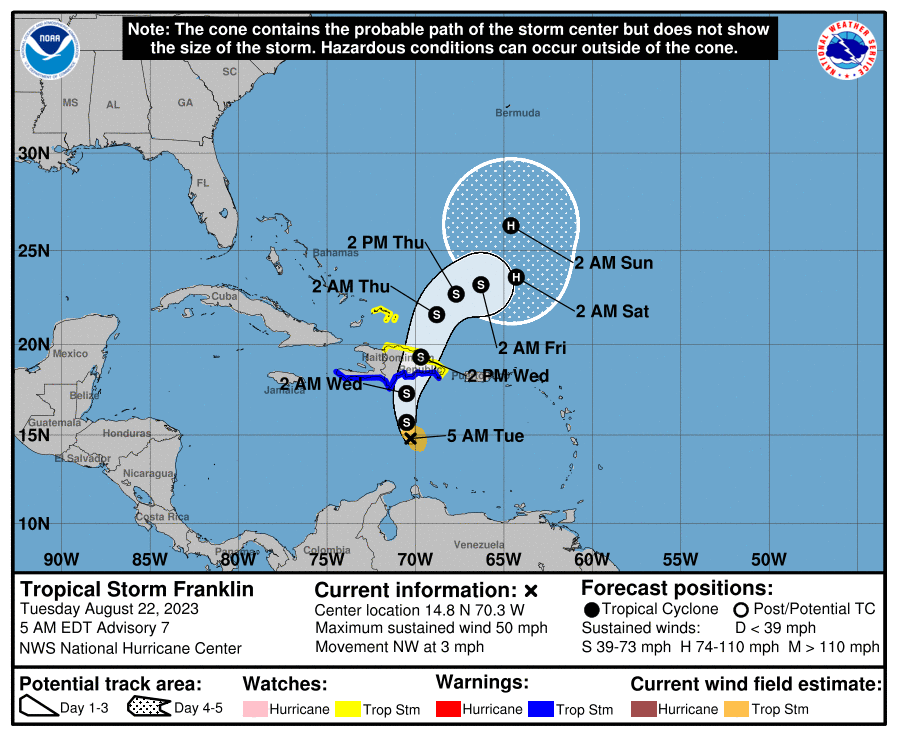
Reporting by Bharat Govind Gautam and Kanjyik Ghosh in Bengaluru; Editing by Elaine Hardcastle and Diane Craft
Our Standards: The Thomson Reuters Trust Principles.
